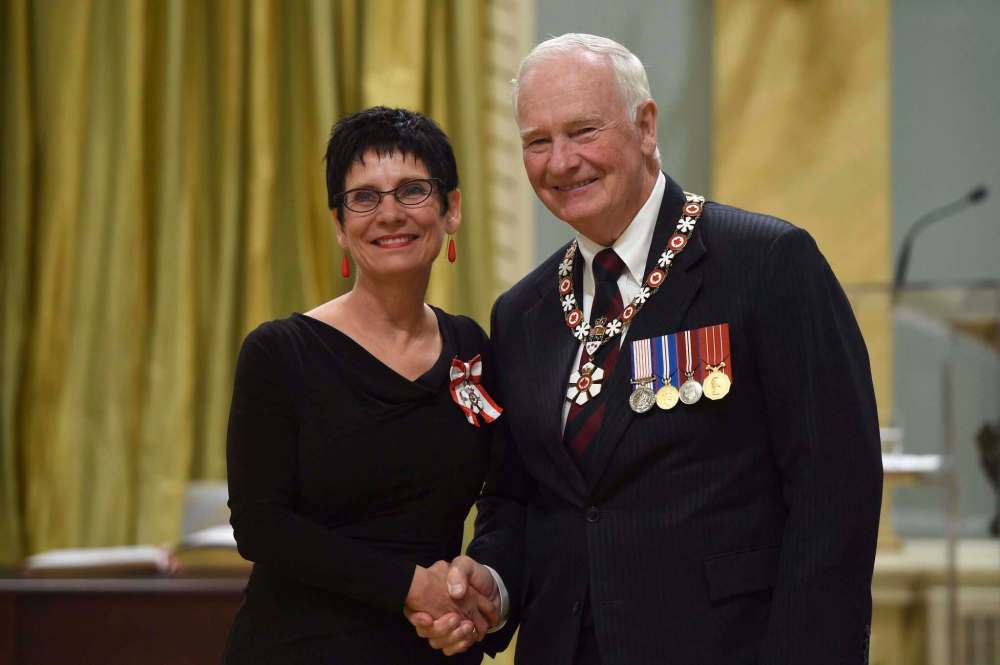A champion for francophone culture and education in Manitoba
Advertisement
Read this article for free:
or
Already have an account? Log in here »
To continue reading, please subscribe:
Monthly Digital Subscription
$1 per week for 24 weeks*
- Enjoy unlimited reading on winnipegfreepress.com
- Read the E-Edition, our digital replica newspaper
- Access News Break, our award-winning app
- Play interactive puzzles
*Billed as $4.00 plus GST every four weeks. After 24 weeks, price increases to the regular rate of $19.00 plus GST every four weeks. Offer available to new and qualified returning subscribers only. Cancel any time.
Monthly Digital Subscription
$4.75/week*
- Enjoy unlimited reading on winnipegfreepress.com
- Read the E-Edition, our digital replica newspaper
- Access News Break, our award-winning app
- Play interactive puzzles
*Billed as $19 plus GST every four weeks. Cancel any time.
To continue reading, please subscribe:
Add Free Press access to your Brandon Sun subscription for only an additional
$1 for the first 4 weeks*
*Your next subscription payment will increase by $1.00 and you will be charged $16.99 plus GST for four weeks. After four weeks, your payment will increase to $23.99 plus GST every four weeks.
Read unlimited articles for free today:
or
Already have an account? Log in here »
Hey there, time traveller!
This article was published 25/11/2019 (2167 days ago), so information in it may no longer be current.
Long before Manitoba was officially a province, the French were the first of the Europeans to discover it, leaving behind names such as Fort Rouge, Fort LaReine, Fort Dauphin and Fort Maurepas.
French-European fur traders came west in the 18th century, setting up trading posts and establishing a francophone presence in what would eventually become Manitoba.
Thus, Manitoba’s francophone community is at the roots of the formation of the province. It’s integral to the province’s cultural identity and its commerce. One of Manitoba’s trailblazers is a woman who has supported francophone language and education for decades. She has never forgotten her roots or her culture.

Sen. Raymonde Gagné was born and raised in St. Pierre-Jolys, one of nine kids in a farming family. She began as a teacher in La Broquerie and has been an educator for 35 years. Most notably, she served as president of the Université de Saint-Boniface from 2003 to 2014.
In 2016, Gagné was named to the Senate by Prime Minister Justin Trudeau alongside another University of Manitoba alumni, Murray Sinclair. Both sit as independent members.
Gagné’s work on the Senate standing committee on the Official Languages Act demonstrates yet again her commitment to francophones in Manitoba and Canada. In April, the committee tabled a report aimed at modernizing the act, which is now 50 years old. The report concluded “that modernizing the act is an opportunity for the federal government to ensure the substantive equality of Canada’s two official languages in the legislative and judicial areas.”
In May, the senator also honoured the struggles for francophone rights in Manitoba with a statement to commemorate the Société de la francophonie manitobaine’s (SFM) 50th anniversary.
Gagné said: “The fight to have both French and English recognized as official languages of instruction in Manitoba or to receive more services in French hasn’t always been easy for francophones, but it has helped change attitudes. The SFM was able to gain support from the community and its organizations through its extensive involvement in major claims and public policy cases.”
But Gagné’s love of teaching is also clear in her service in the Senate. She saluted teachers at the end of the teaching year in June with a statement in the chamber, acknowledging “their boundless generosity and… their exemplary work. Preparing our youth for the future and contributing to the development of Canadian society, as a whole, is no easy task.”
In particular, Gagné highlighted the work of the Franco-Manitoban School Division for its role “in helping their students forge their francophone identities,” going further to say that teaching “is about the personal and social development of each and every one of them, helping them build their identity, define themselves and see themselves as francophones. It is important to understand that choosing to teach at a French-language school in Manitoba carries additional responsibilities.”
Gagné’s commitment to language and learning is very much a part of her resumé. She is credited with changing the Université de Saint-Boniface status from a college to a university, spearheading a fundraising campaign leading to the largest expansion in the university’s history.
These are not easy things to do at any time, but particularly not in a city that already has two other large universities also competing for fundraising dollars.
Obviously, her contributions and connections to the numerous boards and organizations she made across the country helped. Throughout her career, she has been president of the Association des universités de la francophonie canadienne from 2005-09, was a member of the advisory committee on Official Languages for the Office of the Commissioner of Official Languages of Canada from 2007-09, and was a member of the board of directors of the Consortium national de formation en santé, which she co-chaired from 2009-14.
While president of Université de Saint-Boniface, Gagné was a member of the Council of Presidents of Universities of Manitoba and was elected chairwoman in 2012. She was also a member of the senate of the University of Manitoba.
All this, from a woman born and raised in St. Pierre-Jolys, one of nine kids, who has never forgotten her French or her rural roots.
Sen. Gagné is a francophone Manitoban who is a trailblazer for official languages and teachers.
Shannon Sampert is a retired political scientist and runs the communications consulting company Media Diva. She is working with the Nellie McClung Foundation on the 150 Women Trailblazers Awards. Nominate a trailblazer at wfp.to/trailblazers.
History
Updated on Monday, November 25, 2019 5:47 PM CST: Clarifies terms of "discovery" in lead sentence.






